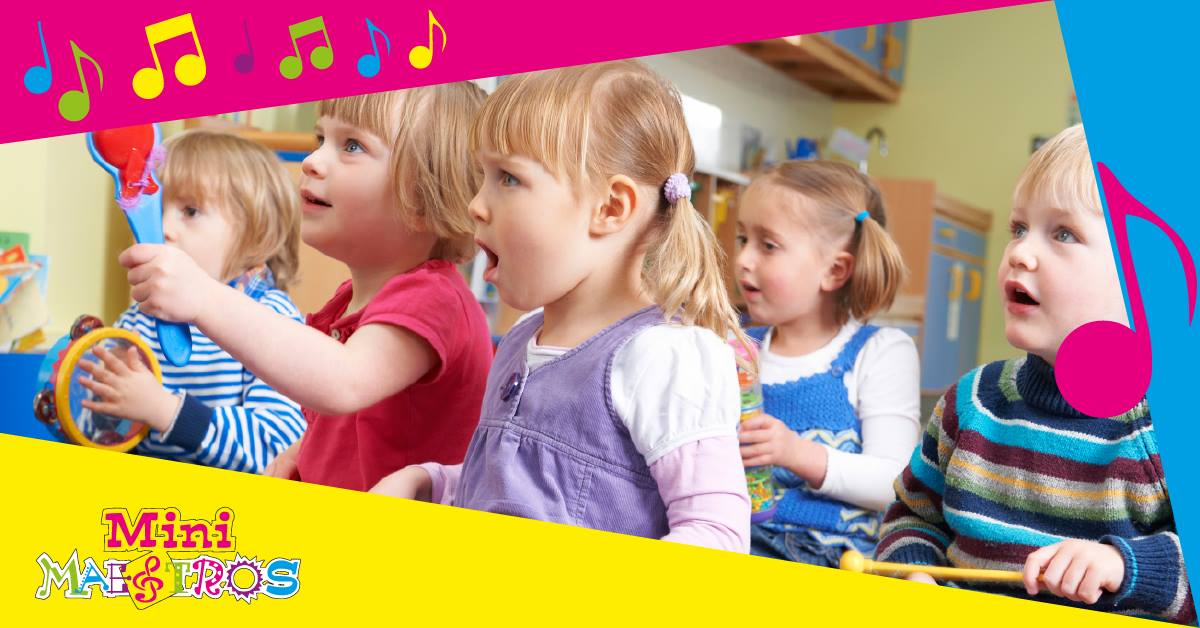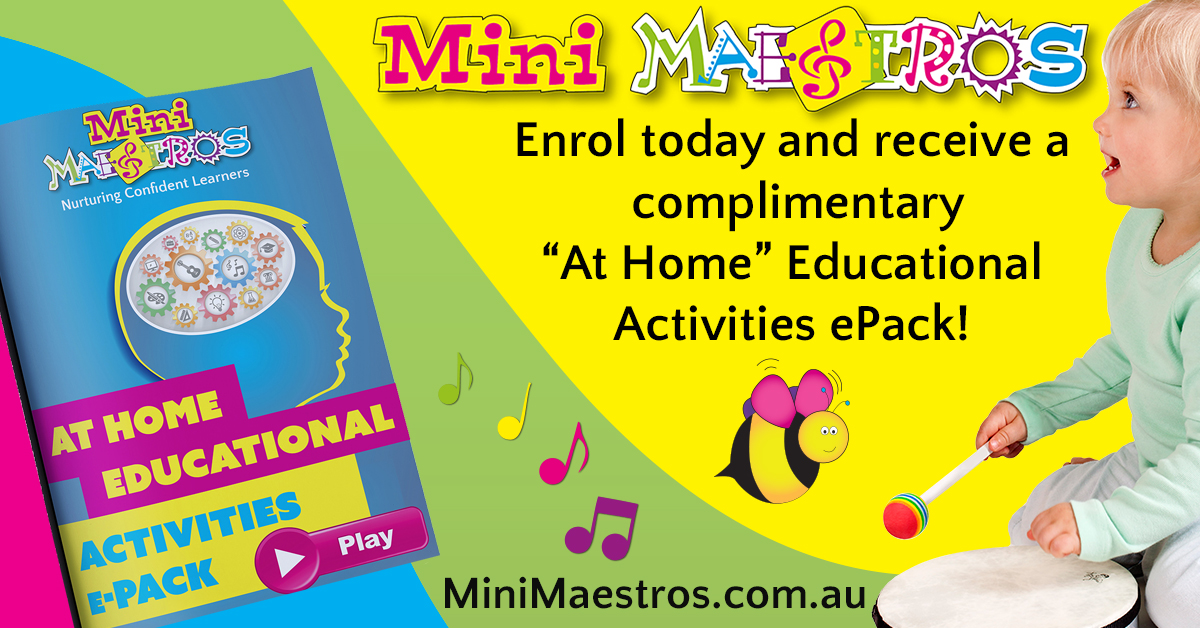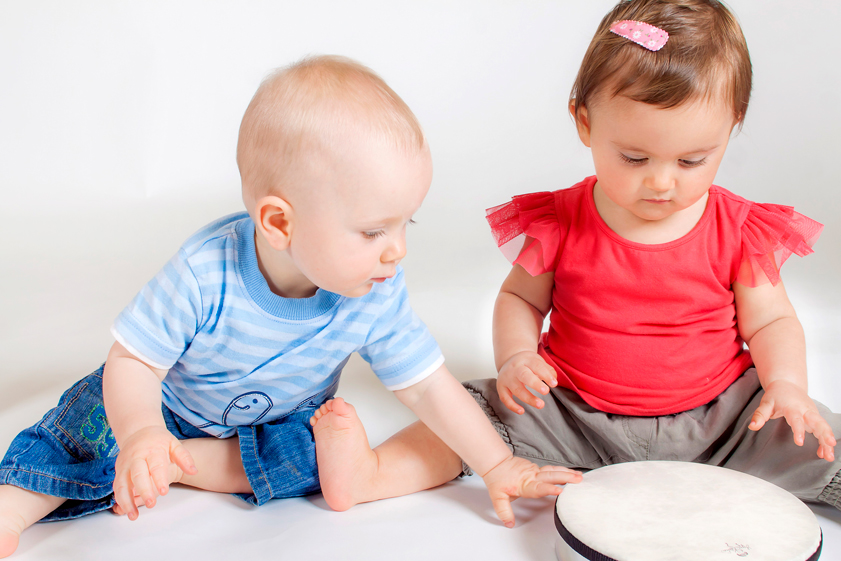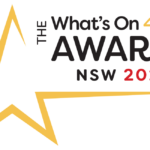Their music classes enhance children’s development while they are having fun. Singing, dancing, playing percussion instruments and musical games stimulate the children’s creativity and imagination. Children participate in a carefully planned and sequential program.
As well as introducing musical concepts such as beat, rhythm, dynamics, form and notation, our program develops the whole child by encouraging children’s speech development, listening skills, social skills and physical skills.
Why Do Mini Mastros kids love their classes so much?
What are the benefits for your child in attending a Mini Maestro’s Class?
Mini Maestros is a structured music program and it is this structure that creates a safe platform from which learning can occur through creative exploration into discovery.
Mini Maestros aims to give children experiences which will: aid their physical development through activities which encourage development of gross and fine motor skills and coordination and relaxation techniques. Each lesson contains many opportunities for children to practise various gross motor skills such as jumping or hopping.
Fine motor skills are practised through the use of finger plays with younger children and the playing of percussion instruments with the older children.
Children are able to practise the skills introduced at their own level but they have the group support, which encourages them to strive for achievement in all skill areas.
Classes help to enhance their emotional development through activities which require emotional expression, role playing, dramatisation sharing taking turns and allow children to feel emotional satisfaction through fun, play, wellbeing and achievement in musical activities.
The classes encourage their intellectual development through activities which will help children develop an understanding of music being a combination of these elements: beat, pitch, dynamics, harmony, melody, rhythm, tempo, tone colour, and form.
Kids are introduced to group participation and thereby develop self-control, discipline and the skills of sharing and taking turns. Group participation also provides opportunities where children can experience feelings of success which assists the developing a child’s self-confidence.
The sessions provide opportunities for the creative participation of each child by encouraging children to make musical decisions (e.g. which instrument would be the best to accompany this lullaby?)

Why is music superfood for your child’s developing brain?
Learning music is unlike learning anything else. This is because making music involves multiple components of the central and peripheral nervous systems including those associated with gross and fine motor skills, emotions, memory, intellect, paying attention, processing expectations and rules, relationships, creativity and cultural values.
Making music is ‘superfood’ for a child’s developing brain.
Participating in musical activities is different from practising other activities because musicians – even very young ones – are constantly learning and making new music, thereby stimulating the entire brain. Applying, practising and seeking to improve a learned skill – such as a physical skill – does not have the same affect. Musicians continue to learn, and that learning stimulates ongoing development of the entire brain.
Learning music promotes whole child development as it helps children develop speech and vocabulary, listening skills, motor skills, social skills and cognitive skills.
Music education also unleashes a child’s creative powers.





